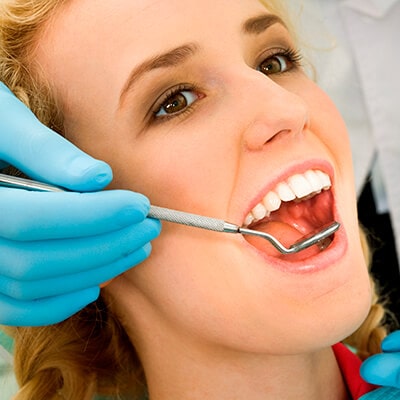Temporomandibular disorder (TMD) frequently causes pain or tenderness in the temporomandibular joint of the jaw, more commonly known as the TMJ. This complex joint plays a crucial role in our daily activities, enabling us to chew, swallow, yawn, and speak.

The TMJ also has a wide range of movement, and it is surrounded by muscles and ligaments that work in conjunction with the joint itself. TMD can cause severe pain for some individuals and can have effects in varying degrees. For instance, 33% of people have experienced some type of TMJ issue over their lifetime.
Causes of TMD
The causes of TMD can vary from an injury to arthritis or even a combination of the two. Experts believe that clenching or grinding your teeth can exacerbate pain in the joint. Additionally, chewing gum for too long or too often can also cause TMJ pain.
There also seems to be a correlation between stress and TMD. However, it remains unknown if stress causes pain in the joint or if stress results from joint pain. In severe cases, pain in the TMJ can have life-altering effects on your daily life. A medical professional should diagnose the condition to determine the root of your discomfort and identify the type of TMD you are suffering from. There is a wide spectrum of disorders related to TMJ.

Treatment Options
Unfortunately, for those suffering from TMD, the options for treatment are limited. Depending on the type of TMD, patients may find relief from massage therapy, acupuncture, and/or physical therapy.
Many people are aware that they clench or grind their teeth. Dr. Crane will examine your teeth for any signs of wear on the tooth structure. As dental professionals, we can often assist by creating a custom night guard to ease the discomfort of clenching and grinding. We will also inquire about your history of headaches, migraines, and muscle discomfort in the joint. A night guard is often a good starting point to find relief.
Dental Treatment
If you suffer from TMD, please inform us before dental treatment. Dental appointments can cause discomfort, which can be worsened by long periods of having your mouth open. When we are aware of your condition, we will try to accommodate this and schedule your appointments to help make you more comfortable.
We would love to discuss your options for treatment and may refer you to a specialist for further care. Please feel free to ask one of us if you have any questions at your next appointment. This revision incorporates more transition words and reduces passive voice, ensuring that all paragraphs have been addressed. Thank you for your patience.
References
Mayo Clinic:
https://www.mayoclinic.org/diseases-conditions/tmj/symptoms-causes/syc-20350941
Canadian Dental Association: https://www.cda-adc.ca/en/oral_health/talk/complications/temporomandibular_disorder/
American Family Physician-Diagnosis and Treatment of Temporomandibular Disorders:
https://www.aafp.org/afp/2015/0315/p378.html
Journal of Manual and Manipulative Therapy-Management and Treatment of Temporomandibular Disorders:
https://www.ncbi.nlm.nih.gov/pmc/articles/PMC2813497/
Faster, better, and more comfortable care is available at Dental Care Of Sumner. We truly live up to our name with an office packed full of advanced technology and a team who is helping move dentistry into the 21st century.
